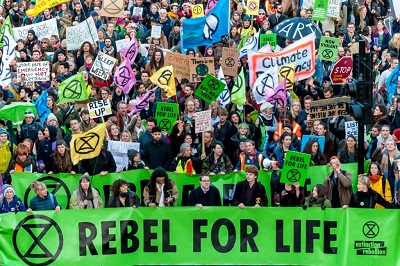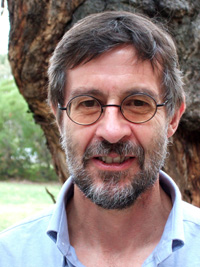 Extinction Rebellion (XR) and the social movements required to save a climate in crisis are the hot topics of an upcoming lecture at The University of Queensland, featuring an internationally renowned social scientist.
Extinction Rebellion (XR) and the social movements required to save a climate in crisis are the hot topics of an upcoming lecture at The University of Queensland, featuring an internationally renowned social scientist.
ANU’s Professor Neil Gunningham will be visiting UQ on the evening of May 7, exploring the phenomenon and pedigree of civil disobedience movements – now aimed at stopping climate change – including the heavily publicised XR movement.
“In 2018, the Intergovernmental Panel on Climate Change warned that we have only 12 years at current global greenhouse gas emissions rates before our chances of limiting global warming to 1.5 degrees Celsius are seriously at risk,” Professor Gunningham said.
“We have a brief window in which to act, and to do so with enough force, commitment and ambition to achieve a rapid decarbonisation of the global economy.
“So one of the questions I explore in my research – and in this lecture – is: how might such a fundamental shift, from business as usual to transformative change, be achieved?”

The researcher’s life’s work has predominantly focused on environmental issues, investigating climate regulation and governance.
“We shouldn’t think of governance as something that’s just the responsibility of governments,” he said.
“It also involves business and civil society.
“And in the environmental field once you start thinking about civil society, protest movements are never far away.
“I began thinking about the global fossil fuel divestment movement and whether this was the best model for change.
“And that led me to asking whether XR’s approach might actually have a much greater impact, and why this might be the case.”
Professor Gunningham will be delving into the long history of protest movements, examining their past, and their future.
“So, what has history has taught us about these type of movements?” he said.
“Like Gandhi’s salt march, the suffragettes, Martin Luther King and the American civil rights movement, XR is part of a long tradition of non-violent direct action, otherwise known as civil disobedience.
“By prying apart these movements’ efficacy, I’m hoping the audience will realise that each of us counts, and that collectively we make a difference, perhaps even all the difference.
“I hope they’ll realise that far-reaching social change usually comes from below, as a result of grassroots activism.
“This isn’t going to be enough in itself – broader coalitions must also be developed, often with unlikely bedfellows.
“But without grassroots activism, change is unlikely to come fast enough, or go far enough, to avert a climate catastrophe.”
The lecture Averting Climate Catastrophe: Extinction Rebellion, Business & People Power will be held between 6:30pm and 8:30pm on Thursday 7 May at the Abel Smith Lecture Theatre, Building 23, Room 101, UQ St Lucia campus.
The event is being put on by UQ’s Centre for Biodiversity and Conservation Science and will be MCed by UQ’s Professor Martine Maron.
RSVP is essential and tickets can be secured via the event’s Eventbrite page, which contains further information.
Media: Dominic Jarvis, dominic.jarvis@uq.edu.au, dominic.jarvis@uq.edu.au.



